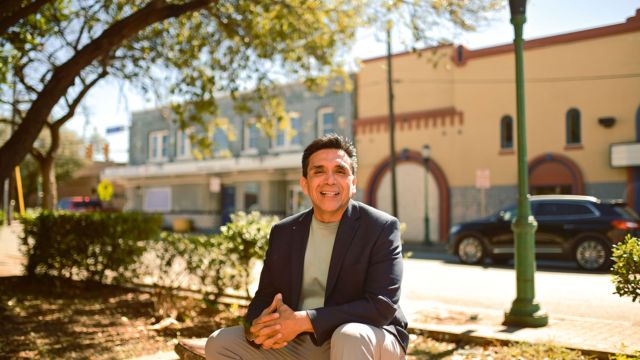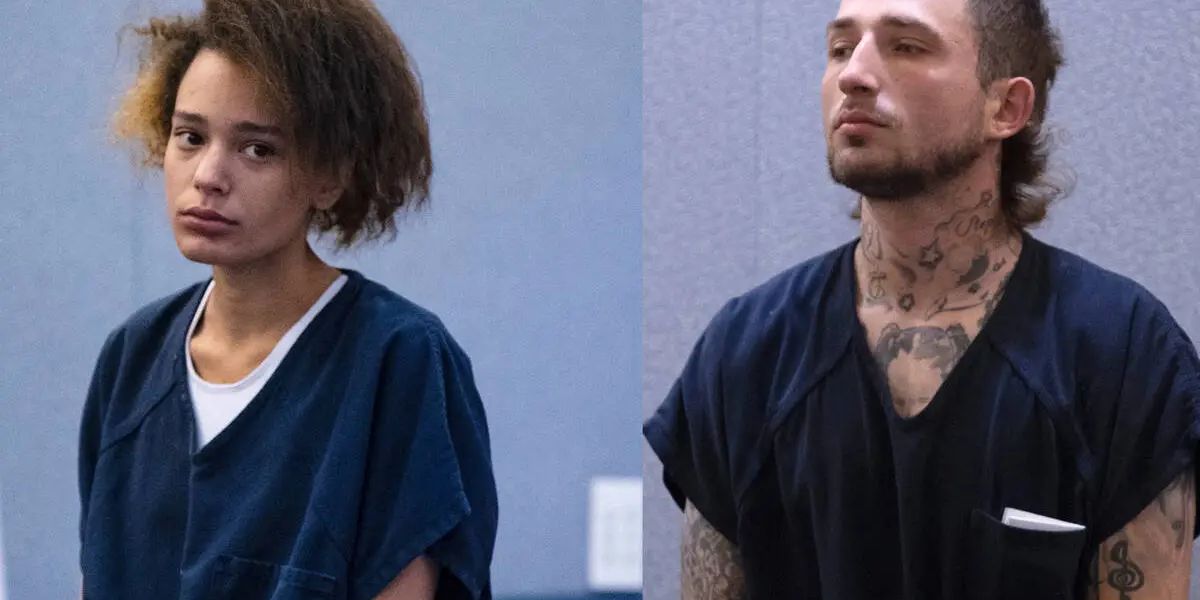Tony Diaz used to see Texas as something of a desert—an environment that could be barren, and occasionally hostile—at least for someone in his line of work.
Since 1998, the bookseller and community activist has been working to address the lack of investment in and access to Latino authors in Texas and beyond. As the founder of Nuestra Palabra, a nonprofit writers group based out of Houston, he organized the Librotraficante Caravan to combat book banning and served as the inaugural literary curator of the Guadalupe Cultural Arts Center’s Latino Bookstore—one of the only bookstores of its kind in the state.
“There’s a stereotype out there that Latinos don’t care about their voices, their history,” Diaz says. “My work is an answer to that, and to the wave of book bans that have been spreading across the country.”
Originally from Chicago, Diaz moved to Texas in 1992 to attend the University of Houston, where he became the first Chicano to earn an MFA from the school’s creative writing program. He knew firsthand the struggles that Latino authors faced getting published, and after that, the challenge of gaining traction once their work was on the shelves.

Even by the time he began working at the Latino Bookstore two decades later in 2021, its location in San Antonio’s West Side was considered a “book desert,” where options for accessing reading material in the area were few and far between.
The store was an attempt to bridge that gap, providing the community with a place to discover hundreds of Latino works, including best-selling titles from authors like Sandra Cisneros and Luis Alberto Urrea, as well as independently published books, zines, and literary journals.
SEE MORE –
New Locations Coming Soon! Washington Welcomes In-N-Out Burger: New State for the Iconic Chain
“It’s where people could stumble onto a bit of our culture,” he says. “If they found a book they enjoyed, hopefully, they’d continue to dig even deeper.”
Diaz frequently made the trip from Houston to San Antonio to organize the bookstore’s monthly author series, as well as their community workshops, which brought in students from the nearby public schools. It was satisfying work, but after three years, he stepped down in May to focus his attention on revamping Nuestra Palabra.
With the help of grants from the BIPOC Arts Network of Houston, Diaz hopes to build on what he accomplished at the Guadalupe Cultural Arts Center by launching an online bookstore at the end of June.
Expanding beyond the written word, Nuestra Palabra will host a YouTube series, highlighting a new Latino artist or author each week. Every installment will give people a chance to purchase their work, or buy a set of books for a classroom in need. Diaz has already connected with several educators and advocates in his area, and is hoping to donate books to students in Pasadena, the Bayland Park Community Center, and in Aldine, an unincorporated community in North Houston.
This new initiative is Diaz’s latest attempt to curb censorship and address the growing book-banning movement. In January of 2012, he and several of his Nuestra Palabra colleagues mobilized upon learning that the Tucson Unified School District was suspending its Mexican-American studies program to comply with a state law banning “courses that promote the overthrow of the United States government or promote resentment toward a race or class of people.” (A federal judge later ruled that the ban was a violation of Mexican Americans’ constitutional rights in 2017.)
As the ban sparked debate across the country, Diaz and his colleagues made headlines with the Librotraficante caravan—a name that literally translates to “book smuggler”—traveling more than 1,000 miles to Tucson, stopping along the way to collect donations from supporters who added to the group’s “underground library” to get as many banned books back into the hands of students.
“After years of being told that our community wasn’t interested in learning more about themselves or expressing themselves through literature, we were used to being audacious,” Diaz says. “A ban like that could have set us back generations. We knew it was a scare tactic, but for us it was also personal.”
Diaz says that, over the last decade, attempts to censor authors of color and remove ethnic studies courses from schools have only evolved, and gotten that much harder to fight. Though the Arizona ban was struck down in 2017, similar legislation restricting the teaching of race in public schools has been proposed and passed in more than a dozen states, including Texas. Diaz has watched as the censorship movement has grown, extending beyond school curriculum, and into school libraries.
“The people who want to keep books out of the hands of our community, and stifle intellectual freedom, they’ve studied the success of our movements,” Diaz says. “They’re coming up with different ways of doing that, by cutting books from libraries and public spaces, and installing these book bans that have now proliferated across the country.”
He hopes that Nuestra Palabra’s virtual bookstore can be part of the solution. By leveraging the power of social media and connecting communities in need with people sympathetic to their cause, Diaz wants to introduce young readers to a wider variety of authors. In the process, the initiative will increase the exposure of rising Latino writers—something that will keep him closely tied to the Latino Bookstore in San Antonio, which publishes independent authors.
“We’re going to connect people who want to donate and spend money on books with people who need them and can’t get them any other way,” Diaz says. “This is about more than book bans, this is about engaging with a whole new generation of readers and writers. Texas won’t be the same after that.”



